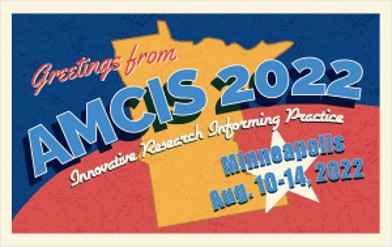SIG ODIS - Artificial Intelligence and Semantic Technologies for Intelligent Systems
Loading...
Paper Type
Complete
Paper Number
1555
Description
The outbreak of the novel COVID-19 demonstrates how pandemics disturb supply chains (SC) all across the world. Policymakers and private-sector partners are increasingly acknowledging that we cannot tackle today's issues without leveraging the promise of new technology. Blockchain technology is increasingly being adopted to help humanitarian efforts in various fields. This paper presents conceptual research designed to assess how Blockchain distributed ledger technology can be leveraged to enhance humanitarian supply chain management (HSCM). This paper fills the present research gap on the Blockchain's potential implications for HSCM by proposing a framework built on the foundations of five prominent institutional economic theories: social exchange theory, principal-agent theory, transaction cost theory, resource-based view, and network theory. These theories could be utilized to generate research topics that are theory-based and industry-relevant. This conceptual framework assists institutions in making decisions about how to recover and rebuild their SC during disasters.
Recommended Citation
Hanna, Bavly; Xu, Guandong; Wang, Xianzhi; and Hossain, Jahangir, "BLOCKCHAIN-BASED SOLUTIONS FOR HUMANITARIAN SUPPLY CHAIN MANAGEMENT" (2022). AMCIS 2022 Proceedings. 4.
https://aisel.aisnet.org/amcis2022/sig_odis/sig_odis/4
BLOCKCHAIN-BASED SOLUTIONS FOR HUMANITARIAN SUPPLY CHAIN MANAGEMENT
The outbreak of the novel COVID-19 demonstrates how pandemics disturb supply chains (SC) all across the world. Policymakers and private-sector partners are increasingly acknowledging that we cannot tackle today's issues without leveraging the promise of new technology. Blockchain technology is increasingly being adopted to help humanitarian efforts in various fields. This paper presents conceptual research designed to assess how Blockchain distributed ledger technology can be leveraged to enhance humanitarian supply chain management (HSCM). This paper fills the present research gap on the Blockchain's potential implications for HSCM by proposing a framework built on the foundations of five prominent institutional economic theories: social exchange theory, principal-agent theory, transaction cost theory, resource-based view, and network theory. These theories could be utilized to generate research topics that are theory-based and industry-relevant. This conceptual framework assists institutions in making decisions about how to recover and rebuild their SC during disasters.
When commenting on articles, please be friendly, welcoming, respectful and abide by the AIS eLibrary Discussion Thread Code of Conduct posted here.



Comments
SIG ODIS